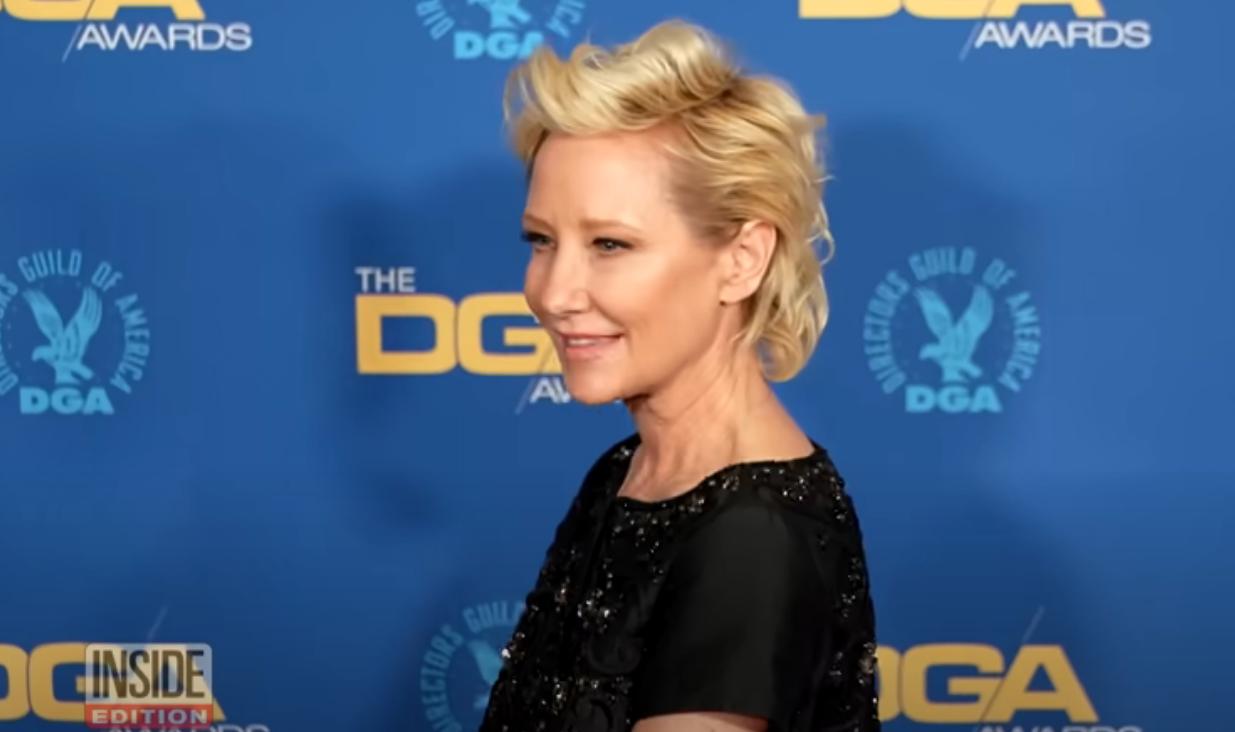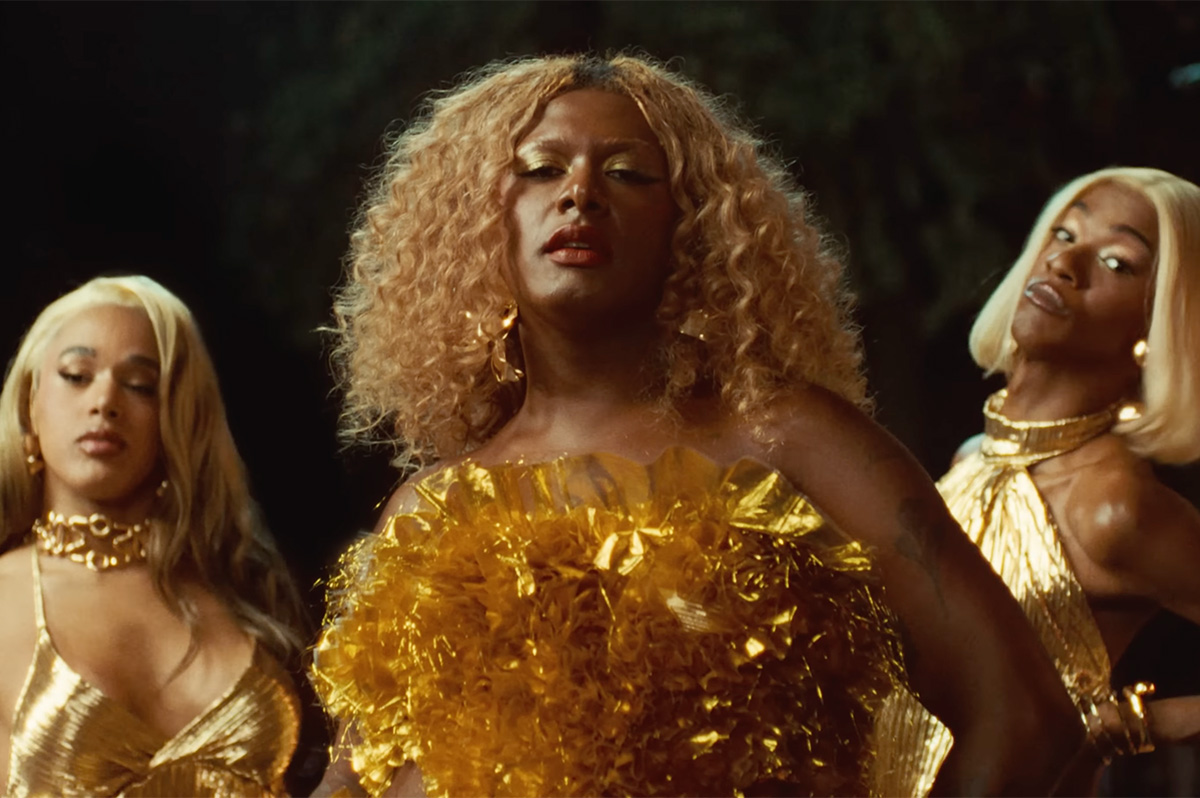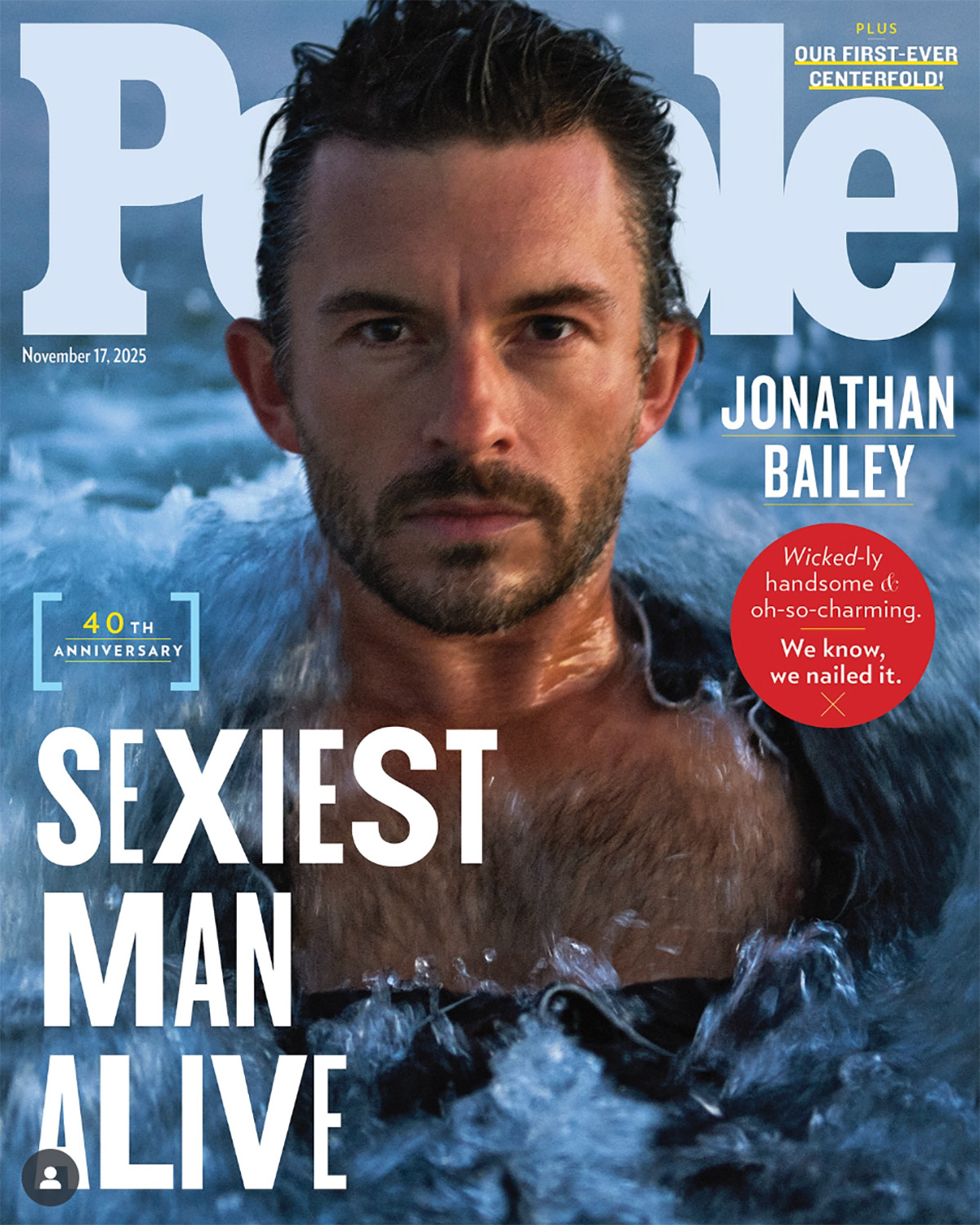Celebrity News
Anne Heche dies after removal from life support
Actress dated Ellen DeGeneres in late 1990s

Actress Anne Heche died after she was removed from life support on Sunday, nearly two weeks after her Mini-Cooper crashed through a two-story house in Los Angeles’ Mar Vista neighborhood. Investigators with the Los Angeles Police Department believe she was intoxicated at the time.
She sustained a severe anoxic brain injury along with severe burns and was being treated at the Grossman Burn Center at West Hills Hospital, near Chatsworth in the San Fernando Valley.
The 53-year-old actress who was a star of films like “Donnie Brasco,” the political satire “Wag the Dog” and the 1998 remake of “Psycho,” had been declared legally dead under California law on Friday, however, her family kept her alive long enough to be an organ donor.
In a statement Friday, the LAPD announced that: “As of today, there will be no further investigative efforts made in this case. Any information or records that have been requested prior to this turn of events will still be collected as they arrive as a matter of formalities and included in the overall case. When a person suspected of a crime expires, we do not present for filing consideration.” LAPD detectives had previously made public that investigators into the crash found narcotics in a blood sample taken from Heche.
The actress’s family released a statement on Friday:
“Today we lost a bright light, a kind and most joyful soul, a loving mother, and a loyal friend. Anne will be deeply missed but she lives on through her beautiful sons, her iconic body of work, and her passionate advocacy. Her bravery for always standing in her truth, spreading her message of love and acceptance, will continue to have a lasting impact,” the statement added.
Heche was married to camera operator Coleman Laffoon from 2001 to 2009. The two had a son, Homer, together. She had another son, named Atlas, during a relationship with actor James Tupper, her co-star on the TV series “Men In Trees.”
Laffoon left a moving tribute on an Instagram reel in which he also gave an update on how their 20-year-old son Homer Laffoon is coping with the loss of his mother.
“I loved her and I miss her, and I’m always going to,” he said adding: “Homer is okay. He’s grieving, of course, and it’s rough. It’s really rough, as probably anybody can imagine. But he’s surrounded by family and he’s strong, and he’s gonna be okay.”
“Rest In Peace, Mom, I love you, Homer,” the actor’s 20-year-old son, Homer, said in a statement after Heche was declared legally dead on Friday.“ My brother Atlas and I lost our Mom,” read the statement. “After six days of almost unbelievable emotional swings, I am left with a deep, wordless sadness. Hopefully, my mom is free from pain and beginning to explore what I like to imagine as her eternal freedom. Over those six days, thousands of friends, family, and fans made their hearts known to me. I am grateful for their love, as I am for the support of my Dad, Coley, and my stepmom Alexi who continue to be my rock during this time. Rest In Peace Mom, I love you, Homer.”
Tupper, a Canadian actor who starred alongside Heche in “Men in Trees,” had a 13-year-old son, Atlas, with her. “Love you forever,” Tupper, 57, wrote on his Instagram post’s caption with a broken heart emoji, which shared an image of the actress from Men in Trees.
Between 1997 and 2000, Heche was also in a relationship with talk show host Ellen DeGeneres.
“This is a sad day,” DeGeneres posted on Twitter. “I’m sending Anne’s children, family and friends all of my love.” The year after her break-up with the comedian, in September 2001, Heche recounted in her memoir “Call Me Crazy,” about her lifelong struggles with mental health and a childhood of abuse.
KTLA’s entertainment reporter Sam Rubin noted that over the past two decades, Heche’s career pivoted several times. In 2017, she hosted a weekly radio show on SiriusXM with Jason Ellis called “Love and Heche.”
In 2020, Heche made her way into the podcast world. She launched “Better Together” which she cohosted alongside Heather Duffy Boylston. The show was described as a way to celebrate friendship.
She also worked in smaller films, on Broadway, and on TV shows. She recently had recurring roles on the network series “Chicago P.D.,” and “All Rise” and was a contestant on “Dancing with the Stars.”
People magazine reported that several of Heche’s acting projects are expected to be released posthumously.
These include “Girl in Room 13,” expected to be released on Lifetime in September, “What Remains,” scheduled to be released in 2023, and HBO Max TV series “The Idol,” created by Abel Tesfaye (The Weeknd) and Euphoria creator Sam Levinson.
In her Instagram post from earlier this year Heche stands between her sons Atlas, 13 and Homer, 20.
From KTLA:

Rob Reiner, most known for directing untouchable classics like “The Princess Bride,” “Misery,” “When Harry Met Sally…,” and “Stand by Me,” died Dec. 14 alongside his wife, Michele Singer Reiner, in their Los Angeles residence. While investigations are actively underway, sources have told PEOPLE Magazine that the pair’s son, Nick Reiner, killed his parents and has been taken into custody.
Reiner was a master of every genre, from the romantic comedy to the psychological thriller to the coming-of-age buddy movie. But in addition to his renowned work that made him a household name, Reiner is also remembered as a true advocate for the LGBTQ community. In 2009, Reiner and his wife co-founded the American Foundation for Equal Rights, helping fight against California’s Prop 8 same-sex marriage ban. They were honored at the 2015 Human Rights Campaign Las Vegas Gala.
In a statement, HRC President Kelley Robinson said: “The entire HRC family is devastated by the loss of Rob and Michele Reiner. Rob is nothing short of a legend — his television shows and films are a part of our American history and will continue to bring joy to millions of people across the world. Yet for all his accomplishments in Hollywood, Rob and Michele will most be remembered for their gigantic hearts, and their fierce support for the causes they believed in — including LGBTQ+ equality. So many in our movement remember how Rob and Michele organized their peers, brought strategists and lawyers together, and helped power landmark Supreme Court decisions that made marriage equality the law of the land — and they remained committed to the cause until their final days. The world is a darker place this morning without Rob and Michele — may they rest in power.”
Reiner’s frequent collaborators have also spoken out as the industry is in mourning, including figures like Ron Howard and John Cusack.
A joint statement from Jamie Lee Curtis and Christopher Guest (who starred in Reiner’s “This is Spinal Tap”) reads: “Christopher and I are numb and sad and shocked about the violent, tragic deaths of our dear friends Rob and Michele Singer Reiner and our ONLY focus and care right now is for their children and immediate families and we will offer all support possible to help them. There will be plenty of time later to discuss the creative lives we shared and the great political and social impact they both had on the entertainment industry, early childhood development, the fight for gay marriage, and their global care for a world in crisis. We have lost great friends. Please give us time to grieve.”
While attending the 2019 HRC Los Angeles Dinner, Reiner spoke out about the need for equality: “We have to move past singling out transgender, LGBTQ, black, white, Jewish, Muslim, Latino. We have to get way past that and start accepting the idea that we’re all human beings. We’re all human beings, we all share the same planet, and we should all have the same rights, period. It’s no more complicated than that.”
Brazil
Black transgender singer from Brazil wins three Latin Grammy Awards
Liniker performed at Las Vegas ceremony

A Black transgender singer and songwriter from Brazil on Nov. 13 won three Latin Grammy Awards.
Liniker, who is from Araraquara, a city in São Paulo State, won for Best Portuguese Language Song for her song “Veludo Marrom,” Best Portuguese-Language Urban Performance for her song “Caju” from her sophomore album of the same title, and Best Portuguese Language Contemporary Pop Album for “Caju.”
She accepted the awards during the Latin Grammy Awards ceremony that took place in Las Vegas. Liniker also performed.
“I’ve been writing since I was 16. And writing, and poetry, have been my greatest form of existence. It’s where I find myself; where I celebrate so many things I experience,” said Liniker as she accepted her first Latin Grammy on Nov. 13. “And being a composer … Being a trans composer in Brazil — a country that kills us — is extremely difficult.”
Liniker in 2022 became the first openly trans woman to win a Latin Grammy.
Celebrity News
Jonathan Bailey is People’s first openly gay ‘Sexiest Man Alive’
‘It’s a huge honor. And it’s completely absurd.’

Actor Jonathan Bailey made history Monday after he was named People magazine’s first openly gay “Sexiest Man Alive.”
Bailey is known for his starring role in “Wicked,” as well as well-received turns in “Bridgerton” and “Fellow Travelers,” for which he was nominated for an Emmy. He returns to the big screen on Nov. 21 in the “Wicked: For Good” sequel.
Bailey announced the news on the Nov. 3 “Tonight Show” with Jimmy Fallon.
“It’s the honor of a lifetime,” Bailey, 37, said. “I want to say, Jimmy, thank you so much for turning it down so that I could be here.”
Bailey told People, “It’s a huge honor. Obviously I’m incredibly flattered. And it’s completely absurd. It’s been a secret, so I’m quite excited for some friends and family to find out.”
People launched its popular “Sexiest Man Alive” issue in 1985 with inaugural winner Mel Gibson. Last year’s winner was actor John Krasinski.
Bailey came out publicly in 2018 and founded a nonprofit, Shameless Fund, which raises money for LGBTQ organizations and issues.




















